 |
Welcome to the September issue of the Social Sciences E-News
Upcoming Events
Social Sciences
in the Media
If you have a good idea for a feature story or would like to post an event to the School of Social Sciences website, please contact Heather Wuebker, hwuebker@uci.edu.
Pass it on
Know anyone who might be interested in our newsletter? Email us to subscribe.
|
 |
 |
Speech without sound
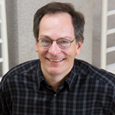
Researchers awarded grant to develop communication system based on thoughts rather than speech
A team of UC Irvine scientists, armed with a recently awarded $4 million Army Research Office grant, is working to develop a new communication system that could help patients suffering from speech loss caused by paralysis to one day "speak" again using a brain-computer interface for thought communication.
Read On...
Congestion solutions
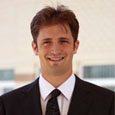
2008-09 Kassouf fellow studies solutions to traffic congestion in developing countries caused by increasing incomes
As the host country of the 2008 Olympic games, China underwent a massive traffic overhaul in order to ease congestion and improve air quality for the world's top athletes who competed this summer in Beijing. One program went so far as to restrict driving privileges for private car owners to every other day travel - a move Chinese officials say not only reduced pollution levels by 20 percent, but also eased congestion in the world's most populous country. While the measure may seem extreme - and realistically is only a short term solution, says fifth year economics graduate student Mark Kutzbach - China's move is an example of developing countries' struggle to keep growing traffic levels at bay.
Read On...
Seeing the world from a different angle
 Inaugural CCNS summer fellowship recipient studies what it's like to see the world in reverse.
Inaugural CCNS summer fellowship recipient studies what it's like to see the world in reverse.
People generally wear glasses in order to see more clearly. Ling Lin, fifth year cognitive sciences graduate student, is looking for quite the opposite effect through the lenses of her soon to be designed spectacles. As the inaugural recipient of the Center for Cognitive Neuroscience's (CCNS) summer fellowship, Lin will be studying what it's like to see - and understand - the world in reverse. Wearing left-right reversing prism spectacles, or what some refer to as "upside down glasses" or "reversing prism glasses," she will be able to see the world as if looking in a mirror. The experiment is part of her overall research to determine how our brains process information and adapt when what we see differs from reality.
Read On...
Incorporation and assimilation
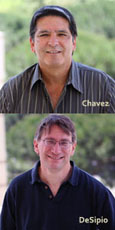
Social scientists study path to citizenship as immigration solution
What to do about the growing number of undocumented immigrants currently living in the United States is a top issue in the national immigration debate and in this year's Presidential election. While the candidates may disagree on the specifics, both Senators McCain and Obama - as well as a number of experts on the topic - share the consensus that a formal pathway to legal status and eventual naturalization is a giant step in the right direction. With a newly awarded $70,000 grant, anthropologist Leo Chavez and political scientist Louis DeSipio will study how similarly approved legislation back in 1986 - the last time such a pathway was approved - has shaped opportunities for immigrant assimilation into U.S. society, both for the immigrants who were able to legalize and for their children.
Read On...
More Headlines
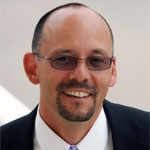 |
Community partners
UC Irvine project couples academic research with community action to combat health issues linked to poverty, poor diets.
|
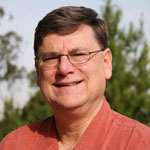 |
Obama and the youth vote
Q&A with Russell Dalton, political science professor and author of The Good Citizen: How a Younger Generation Is Reshaping Politics.
|
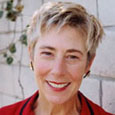 |
Greenhalgh's latest book praised by Science and Nature
UC Irvine anthropologist Susan Greenhalgh's latest book, Just One Child: Science and Policy in Deng's China, has received positive reviews from Nature and Science magazines.
|
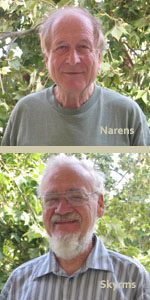 |
Narens and Skyrms receive grant to develop new model for decision making
Professors Louis Narens and Brian Skyrms have received a $376,000 grant from the Air Force Office of Scientific Research to study new models for probability theory and decision making. Using a new mathematical framework, the researchers suggest they may be able to account for the large number of unknowns that current probability theory does not address.
|
| |
|
|
 |



 Inaugural CCNS summer fellowship recipient studies what it's like to see the world in reverse.
Inaugural CCNS summer fellowship recipient studies what it's like to see the world in reverse.
